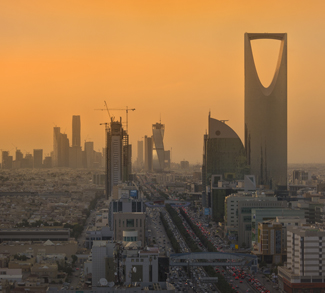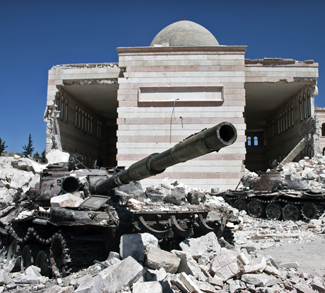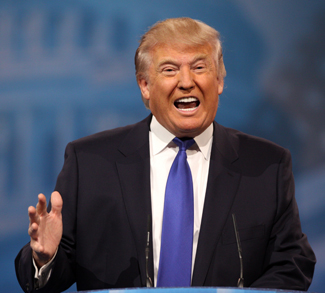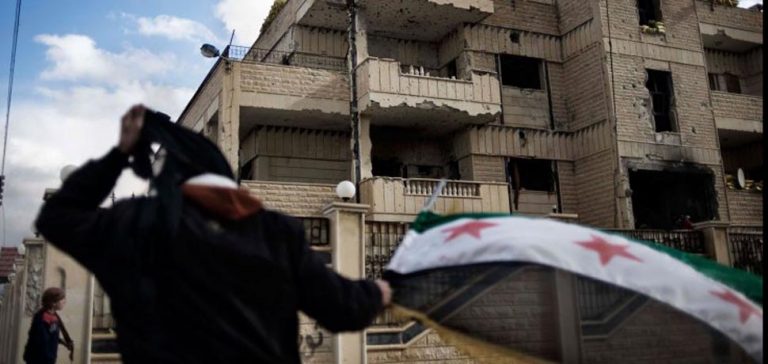King Abdullah of Jordan welcomes the 22 members of the Arab League to Amman on March 29th to discuss the most pressing issues facing the region. It would be an understatement to say he has his work cut out: while the Hashemite monarch has managed to shore up his position since the heady days of the Arab Spring, he is still struggling to weather the Middle East’s bloody power politics. Since many attendees are key players in the crises that are so deeply affecting Jordan, Abdullah has an opportunity to show off some of the same diplomatic prowess that made his father famous.
Of course, few in the West appreciate just how precarious the king’s position really is. Abdullah is well regarded in the United States and in Europe, thanks to the carefully curated image of a thoroughly pro-Western modernizer he and his wife Rania have projected. According to the narrative, Abdullah’s calm demeanor and measured responses make him a lynchpin of stability in an unstable region. His military’s active participation in the anti-Daesh coalition reaffirms him as a bulwark against extremism. But for all his public relations prowess, Abdullah has proven less able to put his kingdom’s affairs in order. PR alone won’t help him protect his kingdom from the Islamic State and the battles being waged along Jordan’s borders, nor will it resolve the refugee crisis which has seen over 1.2 million Syrians seek shelter from their country’s civil war on his lands.
What Abdullah could do, however, is steer his fellow leaders in directions that would lessen the regional burden now borne by Jordan, even if the League’s institutions are not designed to deliver action that would reduce the pressure on Amman. This is most painfully true for Syria, where the ideal outcome (for Jordan) would be tangible movement toward resolution. While Bashar al-Assad’s position in his own country might be improving, the idea of a sea change in the movement to unseat him still seems beyond reach. Six years after the Arab League replaced the Syrian regime with the opposition among its ranks and four years after it called on the United Nations to defend the Syrian populace against al-Assad’s chemical attacks, the Arab world has yet to agree on any consistent course of action.
Arab states remain divided between the Gulf countries who back the opposition on the one hand and pro-Assad stalwarts like Iraq, Egypt, and Algeria on the other. Some attendees, like Lebanon’s Michel Aoun, are mouthpieces of the Iran regime, openly backing Teheran’s goals in Syria. Abdullah himself has tried to keep the door open by refusing to cut off ties with Damascus, but even so, the Syrian rebellion’s newest offensives are a sober reminder that the war, and Jordan’s trials, are far from over.
But while few expect a political breakthrough to come out of the Amman gathering, there are other fronts where Abdullah has room for maneuver and where he is expected to push for help. One on which everyone at the summit is nominally on the same page is the eradication of Daesh. Jordan has been part of the US-led coalition campaign against Daesh militants and has paid the price: with spectacular plots like the one that killed 10 in Karak last December, Daesh is now launching attacks against Jordanian citizens on Jordanian soil.
Regardless of their positions on the regime in the Damascus, all Arab governments are menaced by Daesh’s bloodthirsty jihadism. Egypt is still fighting its insurgency in Sinai, and both the Arabs of the Gulf and the Maghreb fear the violent extremism taking root within their society. These threats will only worsen as the group’s territorial losses turn it into a clandestine, transnational terrorist organization like al-Qaeda before it.
Up until now, the Arab League’s responses have not gone beyond boilerplate statements about the need to “defeat terrorism.” If King Abdullah wants to reduce some of the pressures on his regime, the summit should yield a much more substantial result. With the fighting in Syria continuing unabated, the number of refugees that have voted with their feet and crossed the border into Jordan has already remade the country’s demographics, straining the country to near breaking point.
Abdullah’s government does, of course, get help from its Gulf neighbors in paying for the Syrians under its charge: the Amir of Kuwait Sabah Al-Ahmad Al-Jaber Al-Sabah, for one, has given major contributions on multiple occasions to help Syrian refugees in Jordan and other countries neighboring Syria, including $304 million given to the United Nations in 2015 and aid sent directly to support Jordan’s Zaatari refugee camp. In addition to these personal donations, the Kuwaitis have either hosted or co-hosted pledge drives annually since 2013 and most recently in Brussels early next month.
These drives have raised tens of billions in promised funding to address the refugee crisis, but the international organizations charged with delivering aid continue to face constant shortfalls. Without consistent funding, the humanitarian needs of the Syrian refugees will fall on the shoulders of the Jordanian state — and the public’s patience is already frayed.
The Arab League summit has historically been little more than a talking shop for regional leaders to get together and project a semblance of unity. If King Abdullah wants a different result from this year’s meeting, he will need to somehow bridge sectarian as well as geopolitical divides as deep as they have been since the Cold War. Between the Syrian and Iraqi wars, the Daesh threat, and a disproportionate share of the refugee population, Jordan’s position is more delicate than it appears. That the Hashemite kingdom has held on so well as its neighbors crumbled is remarkable in and of itself, but a major breakthrough at this meeting would come as a near-miraculous surprise.
The opinions, beliefs, and viewpoints expressed by the authors are theirs alone and don’t reflect any official position of Geopoliticalmonitor.com.




